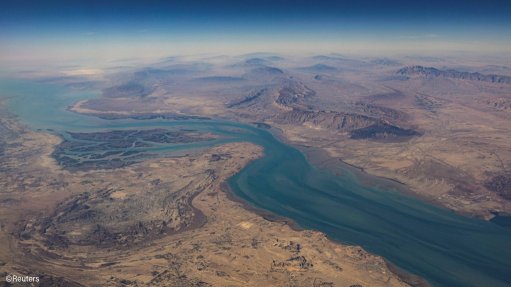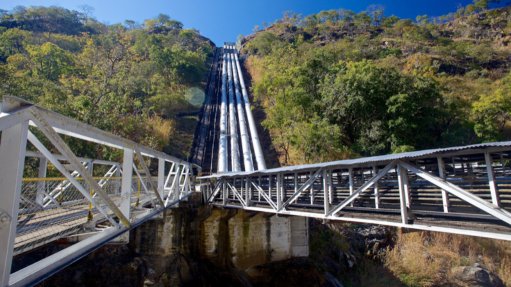Debt-trap diplomacy?
I have made no bones about my cynicism about Chinese generosity towards African countries, which has taken the form of top-dollar freebies, government and State-owned company loans and investment in infrastructure. As I have said before, my uneasiness heightened when it came to light that Sri Lanka had been forced to hand over its Hambantona port to a Chinese State-owned enterprise after failing to service a multibillion-dollar loan. This suggests that, as a lender, China will insist on having its pound of flesh, whatever the circumstances of the borrower.
My negativity, however, is not shared by the powers that be in many countries across the continent. From 2000 to 2016, African countries took out Chinese loans totalling $124-billion, according to statistics compiled by the China-Africa Research Initiative (CARI) at the John Hopkins University School of Advanced International Studies, in the US. Half the loans were given in the past four years, with Angola, Ethiopia, Kenya, Sudan and the Democratic Republic of Congo being the top beneficiaries.
Sierra Leone’s new President, Julius Maada Bio, is one of the few African leaders who seem to believe that the largesse that the Chinese are dispensing in Africa – and elsewhere – is nothing more than Beijing’s ‘debt-trap diplomacy’. Early this month, he pulled the plug on a $400-million loan deal that his predecessor had entered into with the State-owned Export-Import Bank of China to fund the construction of a new airport outside the capital city, Freetown, that was supposed to be completed in 2022. The State-run China Railway International Group was already on site when the cancellation was announced.
The loan agreement was concluded in March, following four years of negotiations, but, that same month, the then ruling All People’s Congress party was booted out in elections that swept Bio to power.
Bio insists the new airport would have been uneconomical, as Sierra Leone’s sole international airport is underused. The cancellation came in the wake of warnings by the World Bank and the International Monetary Fund that the loan would have unnecessarily increased the debt burden of the West African country, which is one of the poorest on earth, ranking 184 out of 189 countries on the 2017 Human Development Index. The airport project was also castigated by some as a “vanity project” that should not be implemented by a country that “is struggling to find money for the delivery of healthcare, education and access to water and electricity”.
Instead of building a new facility, Lungi International Airport will be renovated and a bridge connecting it to Freetown built to obviate the need for boat or helicopter trips.
Bio’s was a sensible decision. Sierra Leone is already labouring under a $220-million Chinese debt, accumulated over the past ten years, according to the CARI, and it would not have been a good idea to add to that burden simply to satisfy the desires of some vain politician. Here is a country which, over the past decade or so, has been struggling to recover from the effects of a lengthy civil war and had to deal with a deadly Ebola outbreak in 2014.
Bio is not the only leader who has turned his back on a piece of Chinese largesse in recent times. In August, Mahathir Mohamad, who began his second tenure as Malaysian Prime Minister in May, cancelled two major Chinese-funded infrastructure projects he said were too expensive for his country, which faces a ballooning $250- billion debt. Mahathir, whose first stint as Prime Minister lasted 22 years, said at the time of the cancellation: “It is about borrowing too much money, which we cannot afford, and also because we do not need these projects . . . at this moment.”
The projects, agreed on with former Prime Minister Najib Razak, would have formed part of China’s much-vaunted Belt and Road Initiative. The first, dubbed the East Coast Rail Link, would have connected the South China Sea with shipping routes off the west coast of Malaysia, while the second would have entailed the construction of a natural gas pipeline in Sabah state, on the island of Borneo.
How I wish we had more Bios and Mahathirs.
Article Enquiry
Email Article
Save Article
Feedback
To advertise email advertising@creamermedia.co.za or click here
Press Office
Announcements
What's On
Subscribe to improve your user experience...
Option 1 (equivalent of R125 a month):
Receive a weekly copy of Creamer Media's Engineering News & Mining Weekly magazine
(print copy for those in South Africa and e-magazine for those outside of South Africa)
Receive daily email newsletters
Access to full search results
Access archive of magazine back copies
Access to Projects in Progress
Access to ONE Research Report of your choice in PDF format
Option 2 (equivalent of R375 a month):
All benefits from Option 1
PLUS
Access to Creamer Media's Research Channel Africa for ALL Research Reports, in PDF format, on various industrial and mining sectors
including Electricity; Water; Energy Transition; Hydrogen; Roads, Rail and Ports; Coal; Gold; Platinum; Battery Metals; etc.
Already a subscriber?
Forgotten your password?
Receive weekly copy of Creamer Media's Engineering News & Mining Weekly magazine (print copy for those in South Africa and e-magazine for those outside of South Africa)
➕
Recieve daily email newsletters
➕
Access to full search results
➕
Access archive of magazine back copies
➕
Access to Projects in Progress
➕
Access to ONE Research Report of your choice in PDF format
RESEARCH CHANNEL AFRICA
R4500 (equivalent of R375 a month)
SUBSCRIBEAll benefits from Option 1
➕
Access to Creamer Media's Research Channel Africa for ALL Research Reports on various industrial and mining sectors, in PDF format, including on:
Electricity
➕
Water
➕
Energy Transition
➕
Hydrogen
➕
Roads, Rail and Ports
➕
Coal
➕
Gold
➕
Platinum
➕
Battery Metals
➕
etc.
Receive all benefits from Option 1 or Option 2 delivered to numerous people at your company
➕
Multiple User names and Passwords for simultaneous log-ins
➕
Intranet integration access to all in your organisation

















